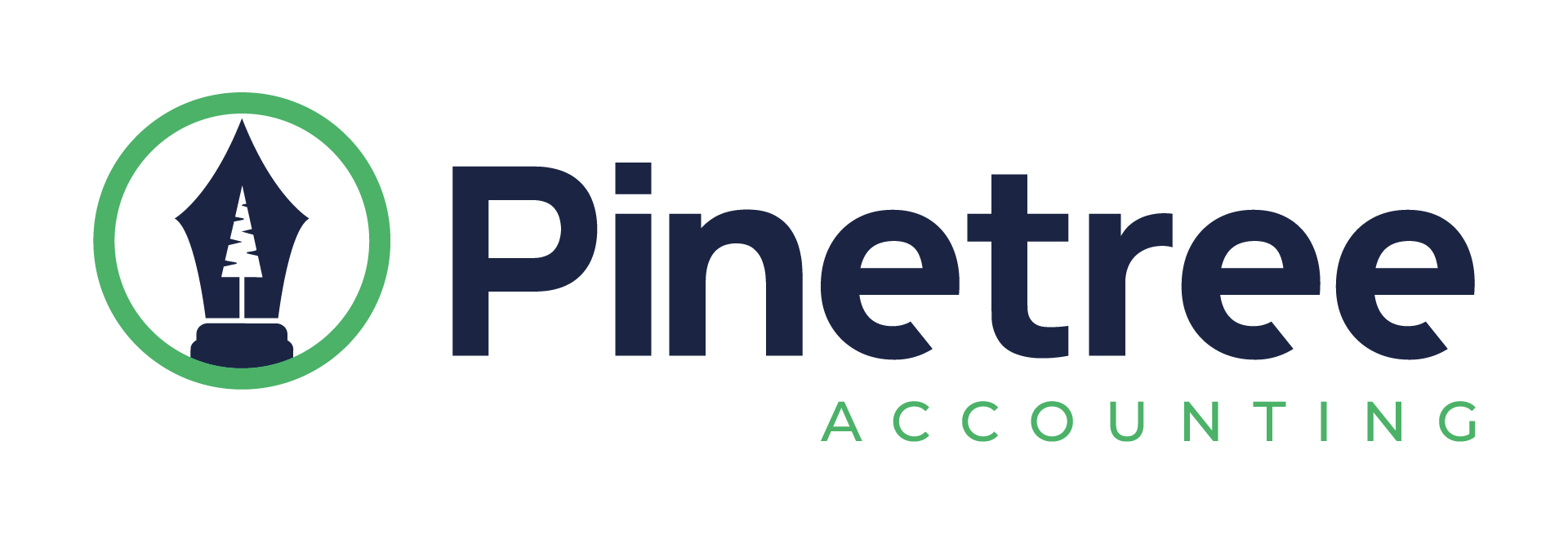As Victoria Harbour glitters with finance sector activity, Hong Kong’s insurance brokers and financial advisors face increasingly complex regulatory demands. The Insurance Authority’s 2025 enforcement push—including the landmark conviction of a licensed broker for late financial statement submission—signals that compliance is no longer negotiable. Whether you’re managing client funds in Central, running a boutique advisory practice in Admiralty, or scaling operations across multiple MTR districts, the accounting and compliance framework demands expertise, precision, and timely action.
This guide walks you through the critical compliance requirements, accounting standards, and financial reporting obligations that define professional practice in Hong Kong’s insurance and financial services sector.
IRB Compliance and Audited Financial Statements for Licensed Insurance Brokers
Licensed insurance broker companies operate under the Insurance Ordinance (Cap. 41) and must submit audited financial statements within six months of financial year-end to the Insurance Authority. This is not merely an administrative formality—failure to meet the deadline constitutes a criminal offence, as exemplified by a broker company fined HK$26,060 in March 2025 for two instances of late submission.
The required documents include audited financial statements, an auditor’s report on financial statements, and a compliance report confirming whether the broker meets financial and operational requirements under the Insurance (Financial and Other Requirements for Licensed Insurance Broker Companies) Rules (Cap. 41L).
Key compliance checkpoints:
- Submit audited statements within 6 months of financial year-end to avoid penalties and licence suspension
- Maintain client account reconciliation records monthly, with documented evidence of any discrepancies
- Keep proper books and accounts reflecting insurance brokerage income, separated by general and long-term business categories
- Maintain professional indemnity insurance coverage meeting IA-prescribed thresholds
- Implement robust internal controls and audit trails for client fund management
Professional audit arrangement services ensure timely, compliant submission of your audited financial statements to the Inland Revenue Department, protecting your licence and client confidence.
SFC Financial Advisor Compliance: Securities and Futures Licensing
Financial advisors operating under Securities and Futures Ordinance (SFO) licensing face distinct compliance requirements from insurance brokers. If your advisory practice involves dealing in or advising on securities (Type 1 or Type 4 licenses), equity funds, or futures contracts, the Securities and Futures Commission (SFC) enforces rigorous financial resources, audit, and reporting standards.
Financial advisor compliance essentials:
- Annual financial resources returns must be submitted to the SFC semi-monthly or monthly, including liquid capital computations
- Audited accounts must be filed within four months of financial year-end
- Annual SFC licence renewal fees (HK$4,740 per regulated activity for licensed corporations) must be paid punctually
- Anti-Money Laundering (AML) procedures require Know-Your-Client (KYC) documentation for all clients
- Client fund segregation is mandatory—deposits must flow directly into designated segregated accounts
The SFC conducted comprehensive 2025 reviews focusing on cyber resilience, KYC compliance, and client asset safeguarding. Advisors holding client assets must demonstrate robust dual-signatory controls over bank transactions and audit trails for fund movements.
Hong Kong CPA Bookkeeping Standards: HKFRS and Financial Reporting
All insurance brokers and financial advisors must maintain accounting records compliant with Hong Kong Financial Reporting Standards (HKFRS). This framework comprises 41 accounting standards and 17 financial reporting standards issued by the Hong Kong Institute of Certified Public Accountants (HKICPA), ensuring a true and fair view of your financial position.
HKFRS reporting requirements:
- Prepare annual financial statements including profit and loss, balance sheet, cash flow statement, and statement of changes in equity
- Use accrual-basis accounting, recording transactions as they occur rather than on a cash basis
- File audits annually if gross income exceeds HK$2 million; maintain records for 7 years if below this threshold
- Present financial statements at least annually, with comparative data
- For SMEs (insurance brokers and advisors often qualify), Hong Kong offers the SME Financial Reporting Framework with simplified disclosures
Your bookkeeper must reconcile client accounts, separate operating and client funds, and ensure income categorisation meets IA or SFC specifications. Professional bookkeeping and accounting services handle this complexity, integrating cloud systems to provide real-time visibility into your firm’s financial health.
Mandatory Provident Fund (MPF) and Payroll Tax Obligations
Insurance brokers and financial advisors employing staff must enrol employees in a Mandatory Provident Fund (MPF) scheme or approved occupational retirement scheme. This applies to all employees earning HK$7,100 or more monthly, regardless of employment contract type.
MPF and payroll obligations:
- Employer and employee each contribute 5% of relevant monthly income, capped at HK$30,000 maximum contributory income monthly
- Contributions are immediately vested in employees’ accounts and cannot be withheld
- File Employer’s Returns annually by March 31st, reporting employee remuneration and MPF contributions
- Employers must enrol employees within one month of employment commencement
- Non-compliance incurs a 5% surcharge on default contributions, plus potential penalties up to HK$5,000 or 10% of the default amount
The Inland Revenue Department does not operate a PAYE (Pay As You Earn) system; instead, employers must accurately report to IRD. Outsourced payroll services manage MPF enrollment, contribution calculations, and employer reporting, ensuring zero compliance breaches.
Insurance Broker Tax Concessions and Profit Tax Optimization
Licensed insurance brokers may qualify for a concessionary profits tax rate of 8.25% (50% reduction from the standard 16.5% rate) under the Inland Revenue (Amendment) (Profits Tax Concessions for Insurance-related Businesses) Ordinance 2020, effective from March 19, 2021. This applies to specified general insurance brokerage business.
To qualify for the 8.25% concession:
| Business Type | Minimum Full-Time Employees | Minimum Local Operating Expenditure |
|---|---|---|
| General insurance brokerage | 3 | HK$1,000,000 |
| Selected long-term brokerage | 4 | HK$2,000,000 |
| Reinsurance brokerage | 7 | HK$4,000,000 |
These thresholds apply per year of assessment. Many insurance brokers maintain adequate headcount and operating expenses; the challenge often lies in demonstrating that insurance products offered fall within eligible categories (certain products are excluded). Professional tax return services examine your income streams, confirming eligibility and optimising your profit tax position.

Separating Operating and Client Accounts
One of the most common regulatory lapses among insurance brokers involves improper handling of client monies. The IA’s enforcement actions in 2025 targeted firms that failed to deposit client premiums into designated separate accounts, instead using these funds for operational purposes—a serious breach under Cap. 41L.
Client account compliance:
- Maintain a separate bank account designated exclusively for client monies
- Reconcile client account bank statements to ledger balances monthly, with documented reconciliation statements
- Never commingle client premiums or claim payouts with operating funds
- Provide written notice to the bank confirming the account’s dedicated purpose under section 71 of the Insurance Ordinance
- Document all client fund movements, including remittance to insurers and claim settlements
Accurate accounting services ensure clean segregation of funds and maintain audit trails demonstrating compliance with IA requirements, protecting your firm from enforcement risk.
Professional Indemnity Insurance (PII) and Capital Requirements
All licensed insurance broker companies must maintain adequate professional indemnity insurance and capitalisation. The IA requires broker companies to calculate PII coverage based on insurance brokerage income earned over the preceding 12 months.
PII and capital standards:
- Maintain minimum liquid capital at all times (calculated per IA guidelines based on brokerage income and business volume)
- Hold PII coverage meeting IA-prescribed thresholds; coverage gaps render the firm non-compliant
- Update PII policies annually and submit copies to IA with audited financial statements
- Demonstrate net assets adequate to absorb operational losses
A 2025 IA case involved a broker facing a HK$11.8 million professional indemnity insurance coverage shortfall—a critical breach. Expert advisors help calculate minimum capital thresholds and PII adequacy, coordinating with your insurer to ensure compliance.
Common Accounting Pitfalls and How to Avoid Them
Delayed or incomplete financial statement submissions trigger licence suspension within three months of the deadline, with revocation after four months. Professional services ensure your auditor submits required documents on schedule.
Incorrect income categorisation (failing to separate general insurance, long-term insurance, and referral income) prevents accurate tax concession claims. Expert accountants categorise income per IA guidelines, maximising eligible tax benefits.
Inadequate documentation of client communications exposes advisors to SFC enforcement. Robust systems maintain audit trails for client interactions, meeting SFC inspection standards.
Non-compliance with AEOI (Automatic Exchange of Financial Account Information) obligations can result in penalties for failing to identify and report client accounts held by non-Hong Kong tax residents. Financial institutions, including certain insurance broker operations, must submit AEOI returns to the IRD annually.
Hong Kong Insurance Industry Growth: Opportunity and Compliance
Hong Kong’s insurance sector premiums reached HK$423.4 billion in the first half of 2025, with new office premiums climbing 50% year-on-year. Long-term insurance business generated HK$173.7 billion in new premiums, reflecting strong market expansion. This growth creates new opportunities for brokers and advisors—and tighter regulatory scrutiny from the Insurance Authority and SFC.
Scaling your practice while maintaining compliance requires integrated accounting, tax planning, and corporate governance. For new brokers establishing operations, professional company formation services ensure proper structure from day one. Additionally, ongoing corporate secretarial services maintain governance compliance as your firm grows, ensuring that compliance never lags behind revenue expansion.
Frequently Asked Questions: Insurance Broker and Financial Advisor Compliance
What happens if I miss the six-month deadline for submitting audited financial statements to the IA?
Missing the six-month submission deadline for audited financial statements is a criminal offence under section 73(2) of the Insurance Ordinance. You face a Level 6 fine (HK$100,000) and potential licence suspension after three months of overdue status. Licence revocation follows at four months overdue. Timely submission signals robust internal controls and protects client confidence. Professional audit arrangement ensures deadline compliance every year.
Can I claim the 8.25% insurance broker profits tax concession if I operate with freelance agents rather than full-time staff?
The 8.25% concessionary tax rate requires meeting minimum full-time employee thresholds (three for general insurance brokerage). Self-employed or freelance insurance agents typically don’t count as full-time employees for concession purposes. Converting agents to full-time employment increases tax liability but unlocks the concession, potentially yielding significant profit tax savings. Expert tax advisory services model both scenarios, helping you decide the optimal structure.
What accounting standards must my financial advisory practice follow if I hold an SFC Type 4 licence?
SFC-licensed advisors must prepare financial statements compliant with Hong Kong Financial Reporting Standards (HKFRS). Your audited accounts must be filed with the SFC within four months of financial year-end, alongside monthly or semi-monthly financial resources returns showing liquid capital. Unlike some overseas jurisdictions, Hong Kong requires full HKFRS compliance for all licensed entities regardless of size. Cloud-based accounting systems ensure real-time compliance with SFC reporting deadlines.
Which client accounts must I reconcile monthly if I operate as an insurance broker?
All client accounts holding insurance premiums or claim proceeds must be reconciled monthly to your accounting ledger. Client account bank statements and ledger balances must match exactly; any discrepancies must be documented with explanations. This reconciliation protects clients and demonstrates robust internal controls during IA inspections. Segregated client accounting with automated monthly reconciliations flags discrepancies instantly.
Take Control of Your Compliance Today
Insurance brokers and financial advisors operating in Hong Kong face a complex regulatory landscape—but you don’t need to navigate it alone. Whether you’re based in Central’s financial hub, Cyberport’s fintech ecosystem, or across Hong Kong Island and Kowloon, expert Hong Kong CPA teams deliver compliance, accounting, and tax solutions tailored to your district and practice size.
Our comprehensive services include:
- Bookkeeping, accounting, and financial reporting compliant with HKFRS and auditor requirements
- Payroll management and MPF administration ensuring zero compliance gaps
- Audit arrangement services guaranteeing timely submission to IA or SFC
- Tax return preparation and profit tax optimisation (including 8.25% concession eligibility)
- Corporate secretarial services meeting governance requirements
- Company formation support for brokers establishing new Hong Kong entities
Ready to strengthen your compliance posture? Contact our Tsim Sha Tsui team today for a free 15-minute consultation via WhatsApp or phone. Let’s discuss your accounting needs and build a compliance strategy that protects your licence and grows your business.
Your compliance journey starts with a conversation. Reach out now.





